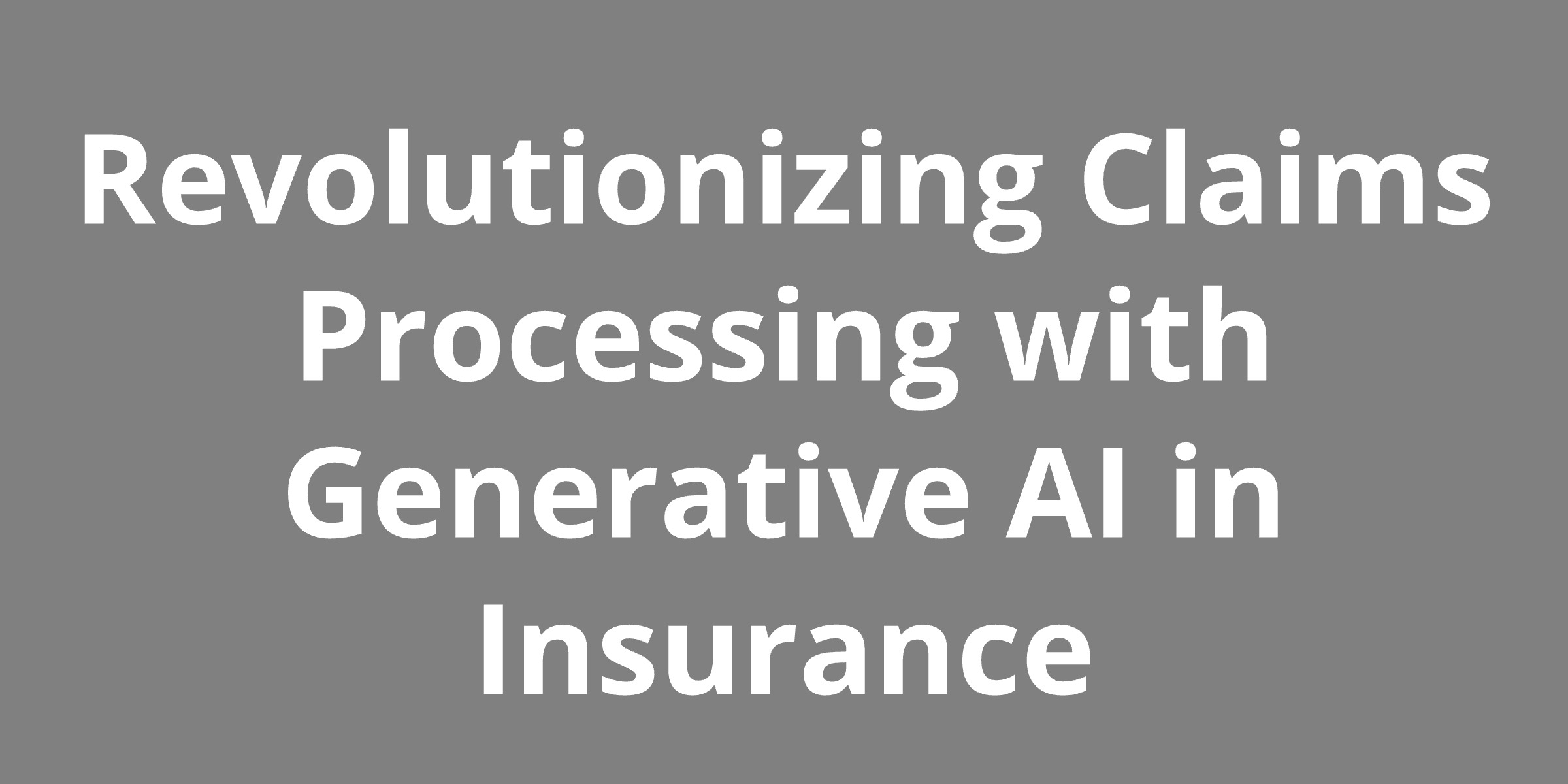Revolutionizing Claims Processing with Generative AI in Insurance
 The Ant
The Ant
The insurance industry has been experiencing a significant transformation in recent years, driven by advancements in technology. One of the most exciting developments is the integration of generative AI in claims processing. This innovation has the potential to revolutionize the way insurance companies handle claims, making the process faster, more accurate, and less prone to errors. In this article, we will explore the features, benefits, and potential challenges of implementing generative AI in insurance claims processing.
Features of Generative AI in Insurance Claims Processing
Automated Data Collection
Generative AI can automatically collect data from various sources, including policyholder information, claim forms, medical records, and other relevant documents. This eliminates the need for manual data entry, reducing errors and improving efficiency.
Intelligent Document Analysis
AI-powered document analysis can quickly and accurately extract relevant information from claim documents, such as medical reports, police reports, and repair estimates. This helps reduce manual review and validation time, allowing claims adjusters to focus on more complex tasks.
Natural Language Processing (NLP)
NLP enables AI to analyze and interpret natural language, enabling it to understand the context and meaning of text-based data. This feature is particularly useful in handling customer communications, such as emails and letters, which can be analyzed for sentiment and categorized accordingly.
Predictive Analytics
Generative AI can leverage predictive analytics to identify patterns and trends in claims data. By analyzing historical data, AI can forecast the likelihood of a claim being fraudulent or legitimate, helping insurance companies make more informed decisions.
Machine Learning
Machine learning algorithms can learn from historical claims data, enabling them to improve their accuracy over time. As AI continues to learn and adapt, it can provide more accurate predictions and recommendations for claims processing.
Benefits of Generative AI in Insurance Claims Processing
Faster Claims Processing
Generative AI can significantly reduce the time it takes to process claims, allowing insurance companies to pay out claims more quickly. This not only benefits policyholders but also helps insurers manage their risk exposure more effectively.
Improved Accuracy
AI-powered claims processing can reduce errors and inaccuracies, leading to more accurate claims settlements. This reduces the likelihood of costly litigation and reputational damage for insurance companies.
Enhanced Customer Experience
Generative AI can help insurance companies provide a more personalized experience for customers. By analyzing customer communication data, AI can identify areas where the customer experience can be improved, leading to increased customer satisfaction and loyalty.
Cost Savings
The integration of generative AI in claims processing can lead to significant cost savings for insurance companies. By automating manual tasks and reducing errors, AI can help insurers reduce operational expenses and improve profitability.
FAQs About Generative AI in Insurance Claims Processing
Can generative AI replace human claims adjusters entirely? No, generative AI is designed to augment human capabilities rather than replace them. While AI can handle much of the data analysis and prediction, human adjusters are still essential for complex claims assessments and decision-making.
How does generative AI handle fraudulent claims? AI-powered systems can detect patterns and anomalies in claims data that may indicate fraudulent activity. However, final determinations should always be made by human adjusters to ensure due diligence and fairness.
Can generative AI handle multiple languages and dialects? Yes, many generative AI solutions are capable of handling multiple languages and dialects. This can be particularly useful for insurance companies operating in diverse markets.
How secure is my sensitive policyholder data with generative AI? Insurance companies must ensure that their AI solutions are compliant with relevant data privacy regulations. Look for providers that adhere to industry standards, such as GDPR or HIPAA, to ensure your policyholder data is protected.
Conclusion
The integration of generative AI in insurance claims processing has the potential to revolutionize the way insurance companies handle claims. By automating data collection, analyzing documents, predicting outcomes, and enhancing customer experience, AI can significantly improve the efficiency and accuracy of claims processing. While there are challenges to implementing AI in insurance, the benefits make it an exciting development in the industry. As technology continues to evolve, we can expect to see even more innovative applications of generative AI in insurance claims processing.
Subscribe to my newsletter
Read articles from The Ant directly inside your inbox. Subscribe to the newsletter, and don't miss out.
Written by

The Ant
The Ant
I am a technologist first!